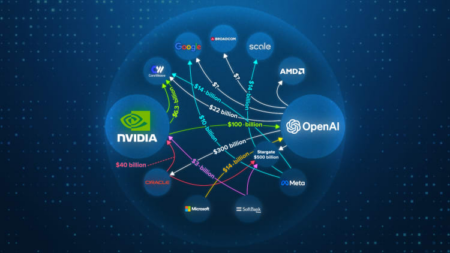Generative AI is transforming industries, but in high-stakes defense operations, unreliable outputs can cause mission-critical failures.
Without continuous evaluation and benchmarking, deploying AI in the military is like driving at night, in a thunderstorm, with no headlights—you may move forward, but the risks of drifting off course or crashing are enormous.
Implementation is Not Moving Fast Enough
The newly released White House Executive Order on AI calls for a robust evaluation ecosystem, setting the stage for safer and more effective AI integration across the U.S. military, including the Space Force.
But implementation is not moving fast enough, especially as rivals like China are developing their own evaluation benchmarks at pace.
This article explains why benchmarking generative AI is non-negotiable for the Department of Defense, how tactical-level teams can operationalize it, and what role a Quality Assurance Sentinel can play in safeguarding military intelligence.
Why Generative AI Needs Rigorous Evaluation
Generative AI models like large language models (LLMs) are only as reliable as the safeguards around them.
Even with safety checks from providers, operators must ensure tactical-level quality control.
Without it, flawed AI outputs could:
- Produce false intelligence reports, leading to bad decisions.
- Cause strategic miscalculations in contested environments.
- Trigger escalation from faulty or misleading assessments.
In military operations, precision is life-or-death.
A generative AI system without ongoing testing, validation, and benchmarking transforms from an asset into a liability.
Lessons from the Commercial Sector
For over two decades, natural language processing (NLP) teams in the commercial world have relied on benchmarking metrics to evaluate translation accuracy, sentiment analysis, and summarization quality. These include:
- BLEU (Bilingual Evaluation Understudy): Measures translation accuracy.
- ROUGE (Recall-Oriented Understudy for Gisting Evaluation): Evaluates summarization quality.
- Sentiment analysis precision/recall: Tracks tone accuracy in intelligence reporting.
This practice ensured teams could detect performance drift, document successful strategies, and maintain consistent quality.
The military can adapt these proven methods without the costly overhead of large-scale commercial AI operations.
The Role of the Quality Assurance Sentinel
One practical solution for tactical-level AI operations is assigning a Quality Assurance Sentinel—a domain expert responsible for:
- Defining mission success criteria (accuracy, latency, hallucination rate).
- Maintaining evaluation control sheets to track prompts, outputs, and benchmarks.
- Running periodic test sets to measure consistency after updates to models or prompts.
- Documenting anomalies and rolling back configurations if performance declines.
- Leading weekly quality standups to keep teams aligned on operational AI readiness.
Unlike outsourced solutions, this role leverages domain-specific expertise (e.g., orbital data, spectrometry, navigational intelligence) to validate outputs directly relevant to the mission.
Building an Evaluation Ecosystem for Defense
The Department of Defense already uses generative AI, but evaluation benchmarks are missing at the tactical level.
Here’s how to fix it:
- Create test sets of 20–50 samples per mission scenario.
- Track drift with simple red/amber/green indicators.
- Use prompt engineering wisely to reduce reliance on costly external benchmarking systems.
- Maintain a prompt repository under version control to prevent prompt drift.
- Capture lessons learned in an institutional knowledge base for long-term reliability.
This lightweight, scalable approach ensures actionable, high-confidence outputs without requiring expensive platforms or external contractors.
Read also: 95% of AI Projects Fail to Deliver Financial Returns – What Are the Reasons?
Why This Matters for the Space Force
In space operations, unreliable AI outputs could compromise orbital intelligence, disrupt satellite navigation, or create vulnerabilities in cyber defense.
By implementing benchmarking now, the Space Force can:
- Prevent catastrophic errors from flawed AI insights.
- Accelerate decision-making with verified outputs.
- Maintain dominance over adversaries racing to weaponize AI.
The Quality Assurance Sentinel becomes the safeguard ensuring AI-driven intelligence is accurate, timely, and mission-ready.
The Future of AI in Defense
Generative AI is already becoming the user interface for broader defense applications, from computer vision to robotics to unmanned vehicles.
Over time, AI will evaluate itself, automating much of today’s benchmarking.
But until then, humans must remain in the loop, ensuring that outputs are reliable before they drive mission-critical decisions.
The bottom line: Generative AI can be a force multiplier for the Department of Defense, but only if evaluation and benchmarking are treated as fundamental requirements—not optional extras.
With proper oversight, military operators can harness AI’s full potential while avoiding the risks of operating “blind.”
Source: War on the Rocks








